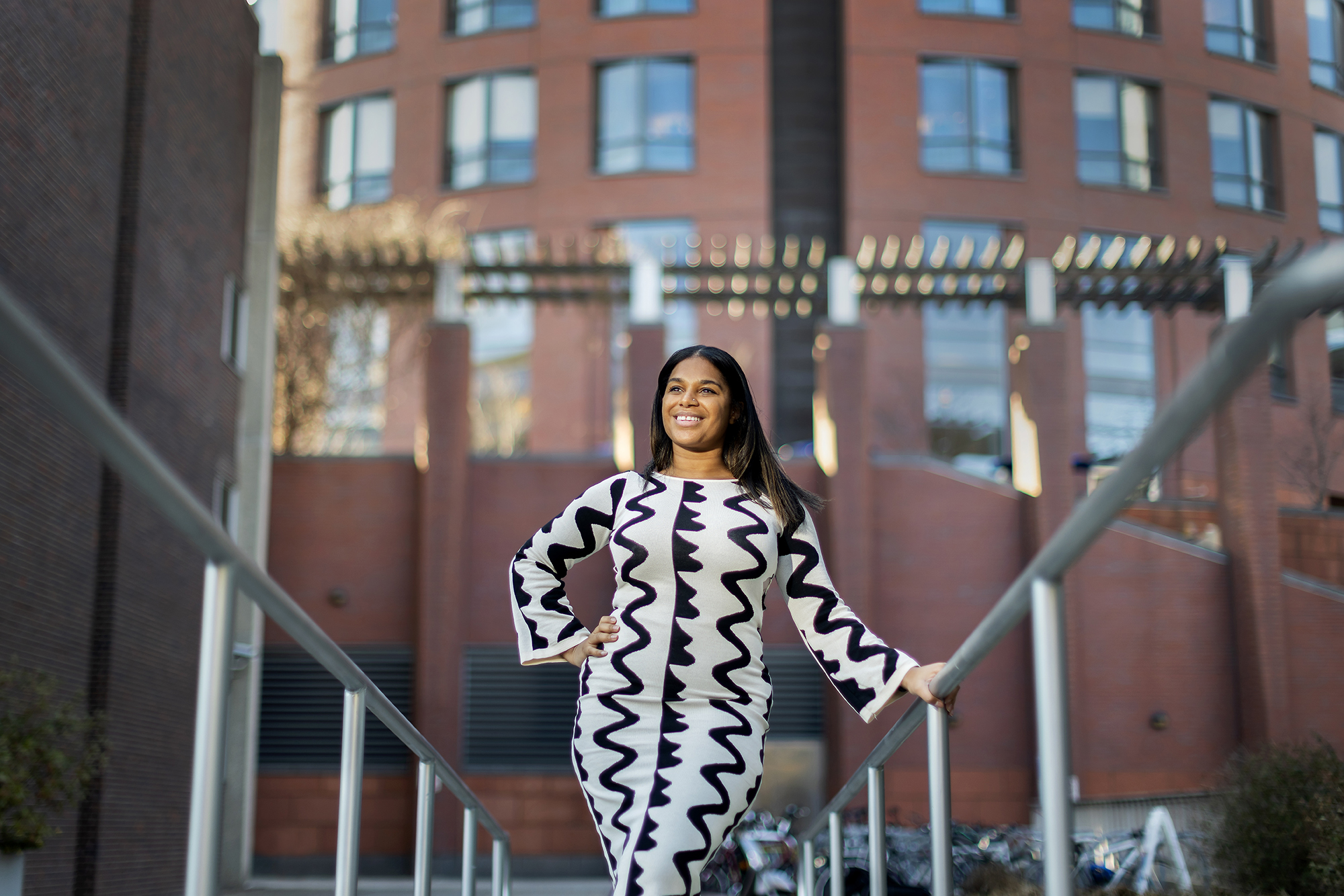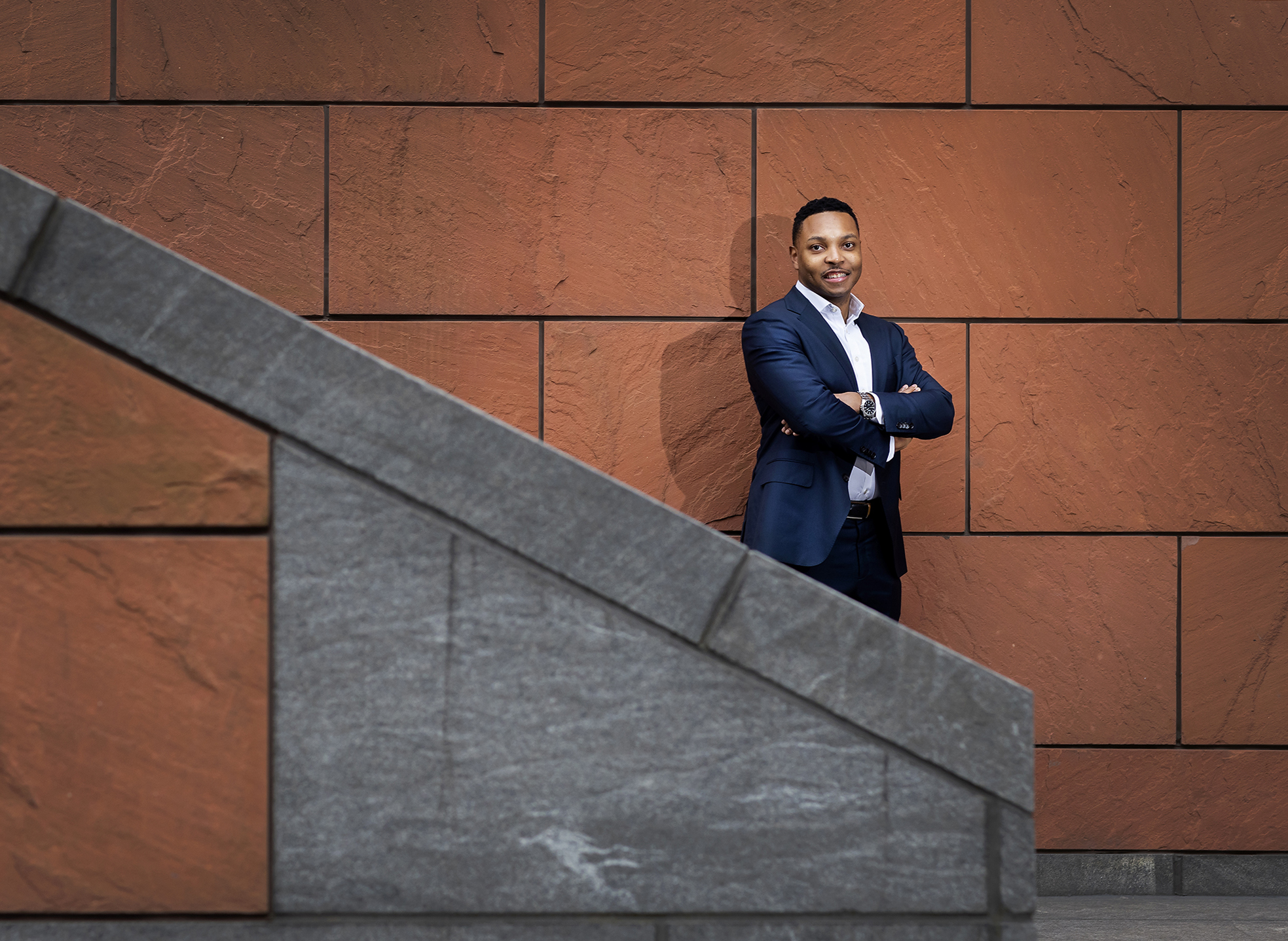Business and Black excellence | Penn Today

When civil rights activist Martin Luther King Jr. was assassinated in 1968, it sent shockwaves across the country that percolated into Wharton, the nation’s oldest business school. At the time, there was one Black student earning his Ph.D., the second Black student in the school’s history. However, a Wharton School professor, Herbert Northrup, had an idea about how to effect change. He urged the dean, Willis J. Winn, to speak to the lone Black student, Bernie Anderson, about what Wharton might do to support King’s vision.
Anderson’s advice was clear. If Winn wanted to be competitive in recruiting Black students, he would have to source talent from the institutions that had been primarily training these minds: historically Black colleges and universities (HBCUs). Winn went on a tour throughout the South to persuade these HBCU students of the benefits of a Wharton degree.
In 1970, Wharton admitted 20 Black students to its MBA program. A year later, it doubled that number. In 1973, those students built the foundation of a community that would become the African American MBA Association (AAMBAA). Now some 180 members strong, AAMBAA is celebrating its 50th anniversary. That’s a little over three generations of Wharton students, says Pamela C. V. Jolly, a 2000 Wharton graduate and the founder and CEO of Torch Enterprises, a strategic investment firm committed to minority business development. The community has expanded with the formation of additional student-led organizations that reflect the breadth and depth of the Black diaspora.
AAMBAA was founded to create an environment where Black people could feel comfortable excelling at the number one business school in the world, Jolly says. “We’ve been able to continue that legacy.”
Willis saw that the missing link for the Civil Rights Movement was economics, Jolly says. At Wharton, students learn how to apply this model to their own lives and how to share it with their communities. “Anyone who is Black, loves business, and wants a nurturing environment to excel should seriously consider Wharton. It is an environment that really embraces your whole self and builds lasting bonds that will carry on for generations,” she says.
AAMBAA is the embodiment of the Black experience at Wharton, says Nafisa Rawji, who is the organization’s co-president along with Marques Stevenson. “Being Black is to look at the rooms full of decision-makers and, most of the time, seeing no one that looks like you,” says Stevenson. “AAMBAA helps increase the visibility of African American business leaders within the Wharton community and beyond.”
Penn Today spoke with four students that exemplify AAMBAA’s legacy: Dale Dykes, Nafisa Rawji, Njeri Warrington, and Blake West.
Dale Dykes II, Class of 2024, strategic management & entrepreneurship
I’ve got a background in corporate finance, focused on understanding how numbers drive business, but I want to expand my knowledge of other business disciplines, such as marketing and operations, in order to understand how different pieces come together and drive decision-making.
Wharton has been in my family since I was a child. My father, Dale Dykes, is a Wharton MBA alum, and he was in AAMBAA as well. He graduated in ’99, and I walked with him. I was five years old.
After graduating, he went into investment banking, which was the path at the time. I could see how Wharton helped him to become a better leader and enabled him to be more strategic in his everyday life. ‘Ownership is the key to financial freedom.’ He always preached that to me. My dad provided me with the vision and showed me what’s possible; my mother provided the structure to make it possible.
While my father continued to support me and teach me through his extensive career, my mother, Tammy Burnside, raised me in the Bronx, New York, where I truly believe I was able to grow into the man that I am today. Growing up in the Bronx, you always have a lot of different things that can distract you. Friends go in different directions. My mother made it her mission to provide me with the necessary structure and discipline that would allow me to reach my goals. She would say, ‘Dale, you’re going to be here at this time. You’re going to do your homework, and I’m going to check it.’ She made sure I had a regimen. Education was at the forefront of my childhood.
Due to the 2008 recession, my family experienced tumultuous financial hardship. I watched as my parents navigated the rigors of financial instability with grace and honor. My mother’s ability to have faith and work hard during trying times inspires me to continue along the journey to reach my dreams, no matter what obstacle is in my way.
Ultimately, my goal is to reach financial freedom—and help others along the way. I often think back to my father’s words about reaching financial freedom through intentional ownership. I want to make the necessary career decisions that will allow me to provide for my whole family, especially my mom, because she did so much for me. That’s my driver. That’s what fuels me every day.
Nafisa Rawji, Class of 2023, entrepreneurship & innovation
Historically, Indians have been an insular community on the continent, so it was rare in my community to be half-African, half-Indian. I’m also the first person in my birth family to be raised in America, and I would not have been here if my family and I hadn’t experienced violence and loss. Sometimes it feels like a burden. ‘You’re so lucky, you have all these opportunities that no one in your family has ever had before you, make the most of it.’ That’s always been a background track in my head. You have all these opportunities. But I always thought, ‘OK, if I’m making the most of it, that also includes helping other people.’
I went to Temple for undergrad and it was my first time living in an area that was that impoverished. What is my role as a Black woman in this space? How do I drive change while building my own future?
So, I jumped at the opportunity to co-found Techsgiving with three African tech professionals who often felt the same. We started by fundraising for laptops for underserved Black and brown students. Then it was like, ‘Let’s have sessions on how to use your laptop to build tech. Why don’t we start showing them design thinking, UX, product management?’ That’s morphed into, ‘How far and how wide can we go with tech education?’ We’re working to help bridge the economic and racial inequities that prevent talent from entering the tech field. I’m fortunate that my cofounders and the larger team have been expanding our impact exponentially while I’ve been in school.
I’ve seen a lot of inequities on both sides of my family. The way we’ve overcome that historically is through creating businesses and enterprises—making opportunities when they aren’t available. With the rise of technology in every sector, technology can be an equalizer. More people in the world have access to a cell phone or internet than they do to clean water. If you’re able to build technology that is accessible and useful in format, approach, and general availability, it can make a huge impact in a way that inspires me.
Color is a big issue in technology. Studies show that self-driving cars are more likely to hit Black people, for example. I have to kind of dance around for my automatic soap dispenser to work, because it was designed to recognize light skin. I know that these kinds of problems can be solved by people like me in the room, at the decision-making table. That’s why it’s so important to me that AAMBAA exists. At AAMBAA, our job is to holistically support anyone who identifies as Black at Wharton.
While my time in MBA has been so busy, Wharton also helped me to slow down, to reflect on what I want my legacy and impact to be. I’m always thinking about how I can increase my velocity in whatever I do, but now my lens for what is possible is so much bigger.
Njeri Warrington, Class of 2024, environmental, social, and governance in business
I’m Caribbean American; my mom is from a really small island called Anguilla; my dad is from Dominica. It’s known as ‘the Nature Island’ and has 365 rivers—one for each day of the year.
In 2017, a Category 5 hurricane came through. Hurricane Maria took the lives of 65 people on the island, including two of my dad’s neighbors. It also caused damages worth 90% of the country’s GDP. In the grand scheme of things, Dominica contributes a small amount to climate change but is suffering massively from its effects—to the point where people I love might not have a home to go back to.
I wanted to be a proactive part of change. For the past five years, I’ve been a federal consultant and worked closely with the Environmental Protection Agency, but I wanted to shift my focus and look at sustainability from a business lens.
Coming to Wharton was the first time that I was exposed to a large number of people who look like me in a graduate setting. While here, I have found a community of Black people with vastly different backgrounds and viewpoints, but all have in common this incredible mentality to achieve what may be even outside their wildest dreams. I, too, want to have my mindset expanded. What are the biggest dreams that I can dream?
There are other people out there like me, who maybe didn’t even know that Wharton was in the realm of possibility. I want to be an example for them. I’m involved in the Black at Wharton buddy program for prospective students and am on the board of CariBiz, which is our Caribbean business initiative, as well as being vice president of social impact at AAMBAA. So I get to connect Black Americans and our Caribbean folks as well to create a larger community.
There’s just something so special about being able to navigate all pieces of who I am. And within this community, I can envision who I could be.
I will always tell people that what you see with me is really what you get. I think people want that from companies, too. They don’t want to feel like things are being greenwashed just for profit. I think we’re starting to understand that we can vote with our dollars. We know that our demand drives product. We might as well do something good in that realm, for all of us and for the environment.
I fully believe in the power of business to drive change and kind of set the blueprint, especially after consulting for the federal government. They’re looking to the private sector for practices, not the other way around.
Blake West, Class of 2023, entrepreneurship and innovation; finance (double major)
I am from Detroit, Michigan. My grandparents moved from Kentucky and Mississippi as a part of the Great Migration in search of better opportunities, as Detroit was the home of innovation in the automotive industry at the time.
I enjoy learning about African American history. I grew up hearing a lot about it, mostly from my family, but didn’t really begin to appreciate the learning the history and stories until I got older.
My parents both work in roles that focus on advocacy—my dad’s a lawyer and my mom’s a social worker—which inspires to me to have an impact through my career. I graduated from Howard University in 2016 and started at Wharton in 2021. My educational and career trajectory means a lot to me, as I recognize the circumstances that my ancestors went through in order for me to break through these doors. I am reminded of this significance when speaking with the elders of my family. My maternal grandmother and her siblings actually supported each other through college as they came to Detroit—education has always been important to us.
After graduation, I want to go back to work in private equity investing—that’s my background—and hope to be a managing partner someday. I was inspired to get my MBA after recognizing that the leaders in the financial services industry all seemed to have graduate degrees. I also see that there aren’t a lot of people that look like me in the industry and recognize the hard work that it will take to succeed. That’s why I’m here. This is a time to reflect and reset. I want to be strategic, but I’d like to have some sort of social impact, too.
AAMBAA’s such a strong community. It feels like a home base—it’s one of the reasons I chose Wharton. I have also seen the power of Wharton’s Black community though events such as the annual Whitney M. Young Conference and through the recent launch of the Black Investment Club. My family and community have supported me throughout my life, and I want to do that for others. I want my legacy to inspire people. I want to be known as someone who opens opportunities for other people, who shows the expansiveness of what’s possible. I’d be happy if at least one person said their life changed because of me.


























































